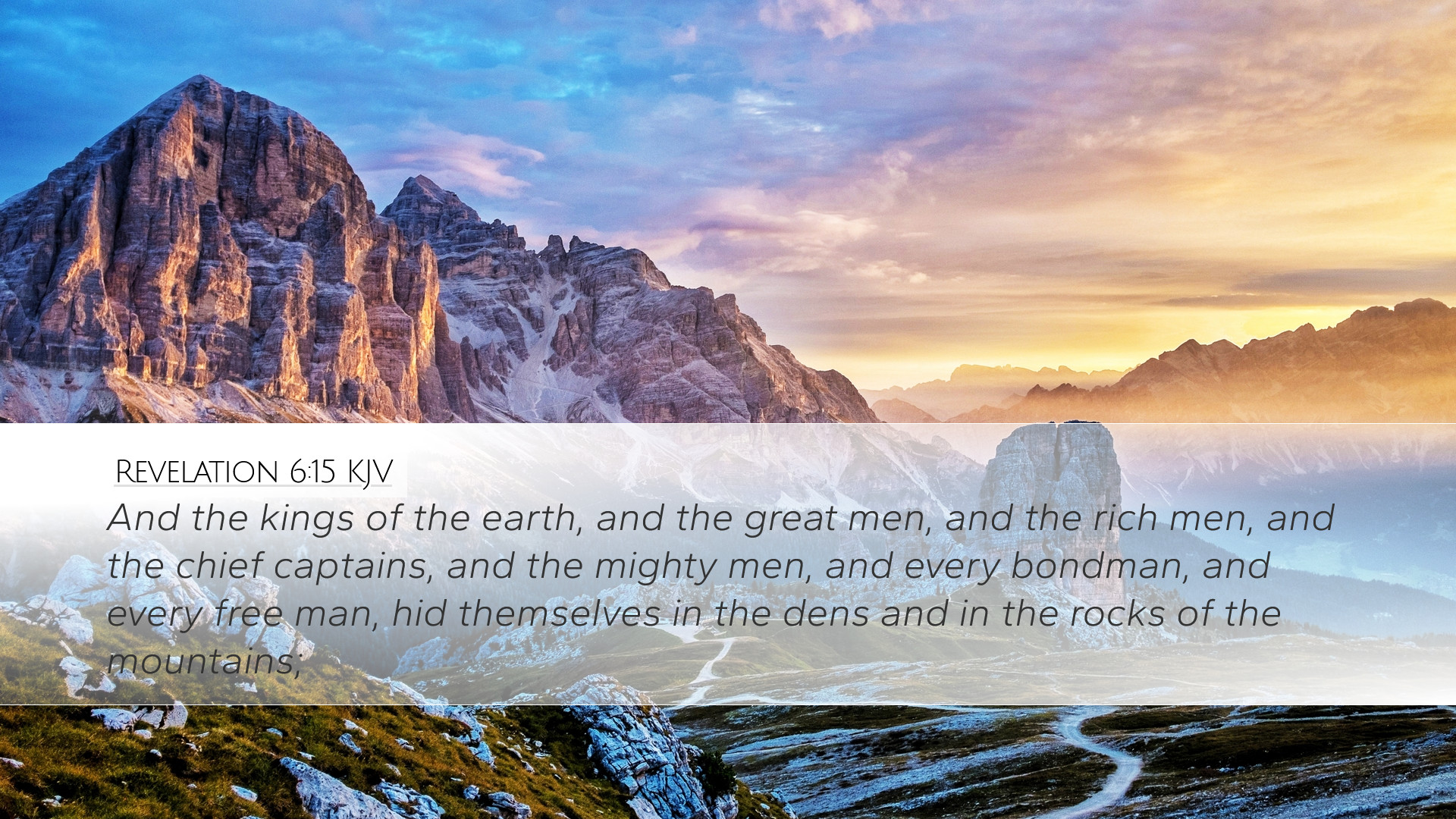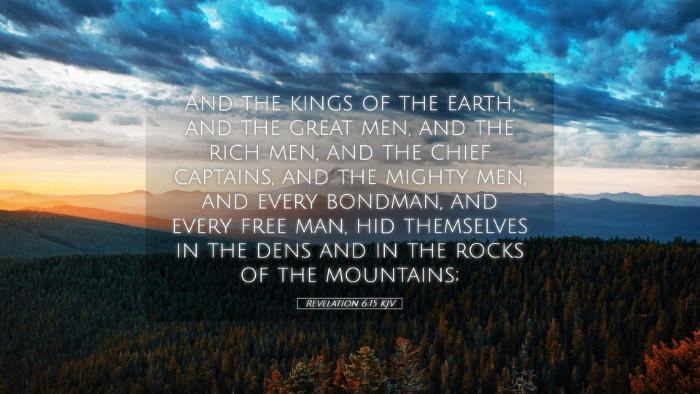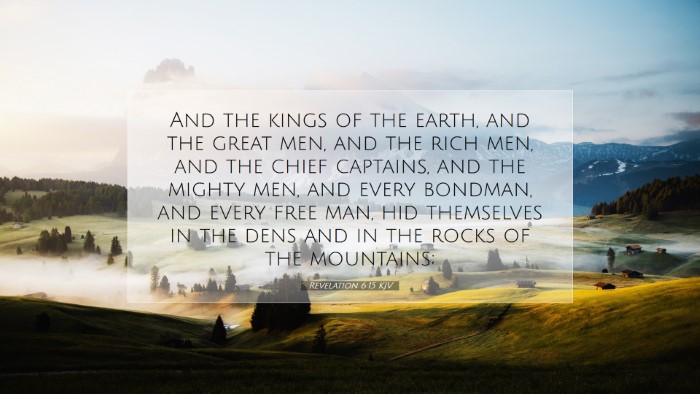Commentary on Revelation 6:15
Revelation 6:15 states: "And the kings of the earth, and the great men, and the rich men, and the chief captains, and the mighty men, and every bondman, and every free man, hid themselves in the dens and in the rocks of the mountains;" This verse paints a vivid picture of the reaction of humanity in the face of divine judgment. In this commentary, we will explore the insights from various public domain sources, weaving together thoughts from Matthew Henry, Albert Barnes, and Adam Clarke.
The Context of Revelation
The Book of Revelation is often regarded as a prophetic work that reveals the culmination of God's plans for humanity. In the preceding chapters, the seals of the scroll are opened, unleashing judgments upon the earth. The opening of the sixth seal, which encompasses Revelation 6:12-17, ushers in extraordinary cosmic disturbances that signal the impending day of the Lord's wrath.
Who is Affected?
This verse specifically mentions various categories of people who seek to hide:
- Kings of the Earth: High political leaders who hold power and authority. Their status provides no refuge from God's judgment.
- Great Men: Notable figures and influencers whose positions in society are deemed significant.
- Rich Men: Those who have amassed wealth, showing that material possessions cannot save them.
- Chief Captains: Military leaders who often rely on force, illustrating that might and strength are futile against divine justice.
- Mighty Men: Strong and valiant individuals, suggesting that human valor has no power in the sight of God.
- Bondmen and Free Men: The contrast of social statuses highlights that regardless of one’s position, all are subject to God’s judgment.
The Universal Response to Divine Judgment
Henry emphasizes the panic and fear that consume humanity when faced with God's wrath. He illustrates how all these groups, regardless of their earthly power, are rendered powerless against divine might. They attempt to hide themselves, demonstrating an understanding that they cannot escape the judgment that is unfolding before them. In Barnes' commentary, there is a poignant reminder that the day of the Lord will come as a thief in the night, unexpected and unprepared for, and the fear demonstrated here is real and palpable.
Symbolism of Hiding
Adam Clarke notes the symbolism behind their hiding. The mountains and hills are often biblical symbols for strength and protection. However, the very structures that ought to provide shelter become meaningless in the face of divine retribution. Humanity's instinct to hide is deeply rooted in the fall of man, harkening back to Adam and Eve who attempted to hide from God after their disobedience.
Theological Implications
This verse presents profound theological implications regarding sin, judgment, and accountability:
- Sin and Its Consequences: This scene reiterates the reality of sin's devastating consequences and the ultimate judgment it brings.
- God’s Sovereignty: The verse embodies God's ultimate authority over all creation, transcending human hierarchies and societal status.
- Repentance and Refuge: While humanity's instinct is to hide in fear, there is an underlying need to seek refuge in God rather than fleeing from Him.
The Call to Awareness
The response depicted in Revelation 6:15 is a call to awareness for believers and scholars alike. It asks us to consider the state of our hearts in relation to God’s holiness and the impending reality of judgment. As pastors and theologians, this verse challenges us to communicate the seriousness of sin and the joyous news of the Gospel, which offers refuge amidst judgment.
Conclusion
In conclusion, Revelation 6:15 serves as a sobering reminder of the judgment to come, impacting every strata of society. It underscores the futility of human status in the face of divine power and calls attention to the ultimate accountability that awaits us all. The insights rendered from the commentaries of Henry, Barnes, and Clarke provide a rich tapestry of understanding that is beneficial for pastors, students, and theologians who seek to grasp the depths of God's Word and communicate it faithfully.


